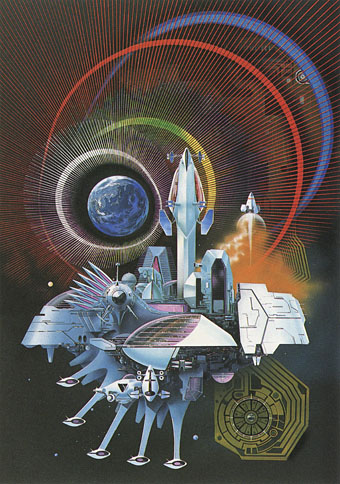Composition B (No.II) with Red (1935) by Piet Mondrian.
• “Red is practically faultless, save, perhaps, for one hard-to-get-excited-about foray into atmospheric free jazz (Providence), though the sprawling, epic roller coaster of emotion and dexterity that follows (Starless) surely makes up for any shortfall.” Patrick Clarke on 50 years of my favourite King Crimson album. I like Providence, the piece is part of a live performance in Rhode Island so the Lovecraft connection adds to the aura of doom that pervades the album; and the structure of the album’s second side—jazz improv followed by a multi-part, Mellotron-heavy epic—harks back to the group’s debut.
• “It’s important to challenge the common idea of an almost evolutionary procession, where modernist abstract art is somehow the climax, a new and perfectly original approach to the visual world, absolutely different from all that preceded it.” Hunter Dukes on the yellow rectangle that denotes silence in the Silos Apocalypse.
• The Art of Sidney H. Sime, Master of Fantasy, an exhibition at the Heath Robinson Museum, Pinner, London. Meanwhile, at the USC Fisher Museum of Art in Los Angeles, there’s Sci-fi, Magick, Queer L.A.: Sexual Science and the Imagi-Nation.
• “I did not realize how much I had done. I am a serial polluter.” Ralph Steadman and his daughter, Sadie Williams, talking to Steven Heller about Steadman’s latest exhibition which is touring the USA.
• New music: Come Back To Me [Demo] by Broadcast; The Last Sunset Of The Year by Marcus Fjellström; Hexa by Cleared.
• At Spoon & Tamago: Artists summon mythical creatures of the Echigo region for the 2024 Wara Art Festival.
• The Italian Art of Violence: Samm Deighan on the giallo cinema boom of the 1960s and 1970s.
• Gavin Friday’s favourite albums.
• Red (1991) by Jarboe | Red Earth (As Summertime Ends) (1991) by Rain Tree Crow | Red Sun (2012) by Anna von Hausswolff





